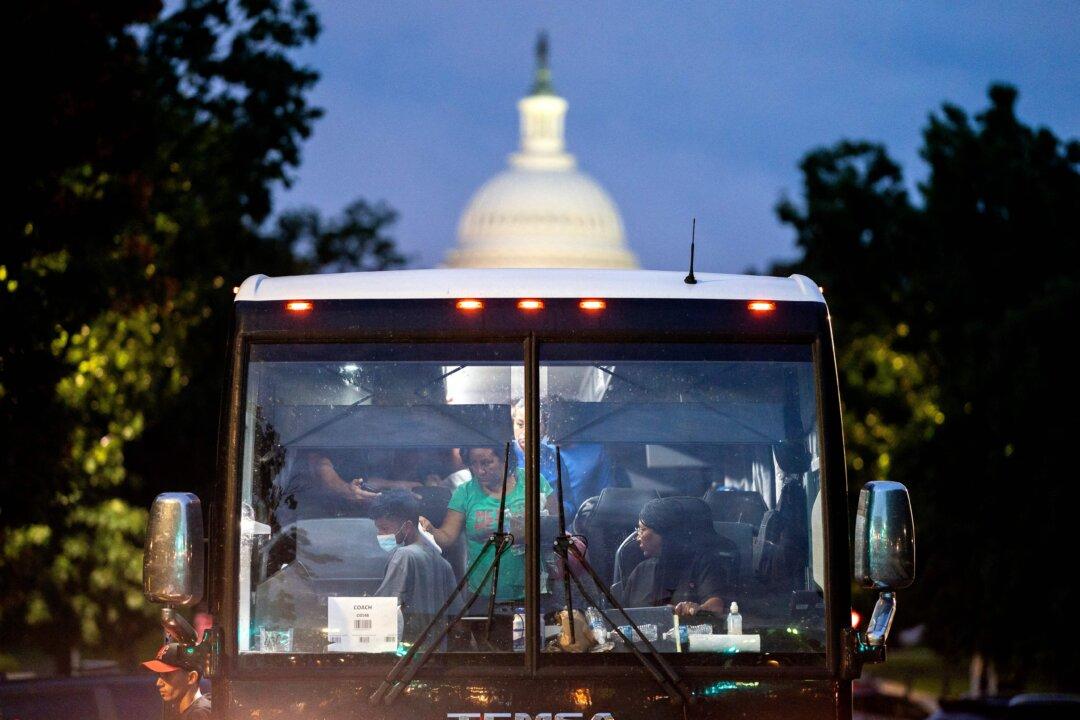Florida lawmakers have approved an expansion of Gov. Ron DeSantis’s relocation program for illegal immigrants, handing him the authority to transport such individuals from anywhere to anywhere in the country, including to blue states.
In a special session, the state’s House of Representatives voted along party lines on Feb. 10 to expand DeSantis’s effort to relocate unauthorized immigrants from any state to any jurisdiction in the United States.





